Search
Search Results
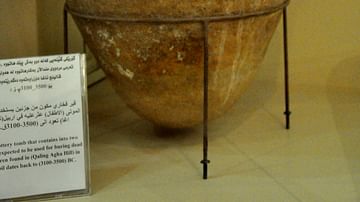
Image
Pottery Tomb
This pottery tomb is composed of two parts and is in the shape of an egg. It was probably used for burying dead children. From Tell Qaling Agha at modern Erbil Governorate, Iraq. 3500-3100 BCE. Erbil Civilization Museum, Iraq.
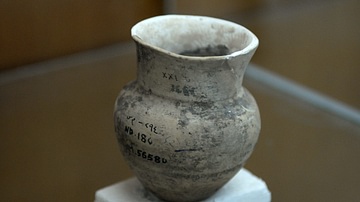
Image
Pottery from Nimrud
This pottery was found in the city of Nimrud (the Assyrian capital), northern Mesopotamia, Iraq. Note the writings and acquisition numbers on it. Neo-Assyrian period, 911-609 BCE. From Mesopotamia, Iraq. The Sulaymaniyah Museum, Iraq.
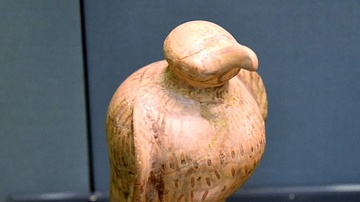
Image
Phrygian Pottery Vessel
This is a painted pottery bird-shaped vessel. The bird's feathers are indicated by the brown pigment. The orifice of the vessel lies below the tail. From Phrygia, Central Anatolia, in modern-day Turkey. Phrygian, 8th to 7th century BCE. (The...
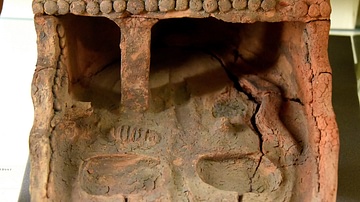
Image
Egyptian Pottery Soul House
Redware pottery depicting the so-called "soul house", from E-Kab, Egypt, 11th to 12th Dynasties, 2024-1700 BCE. It has flattened pellets representing a loop of wood. One of the two pillars which supports the roof is lost. Mr. Petrie thought...
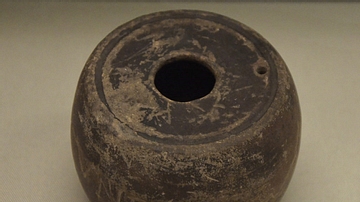
Image
Pottery Ink-well
Pottery ink-well inscribed with the owner's name, Iucundus, from Londinium (Roman London). The ink was made up using one part of gum-water to three parts carbon black. (British Museum, London)
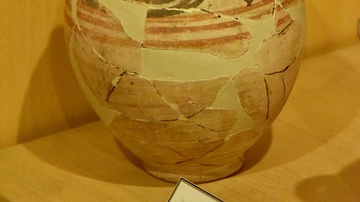
Image
Pottery jug from Gezer
Pottery jug with a broken handle. From Gezer, in modern-day Israel. Early Iron Age in Palestine/Syria, 1200-900 BCE. (Museum of Archaeology, Istanbul, Turkey).
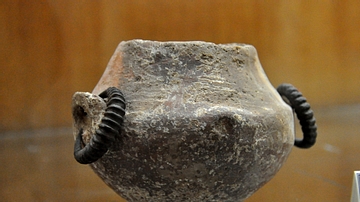
Image
A Pottery Jar from Pangween
This pottery jar has two bronze handles and was found in the Nzara area near Pangween village of modern Sulaimaniya Governorate, Iraq. The Hellenistic period, 323-30 BCE. (The Sulaimaniya Museum, Iraq).
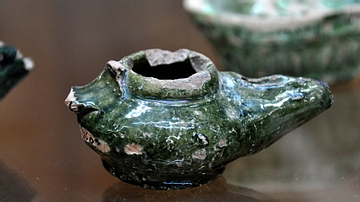
Image
Pottery Lamp
This glazed pottery lamp dates to back to the 6th century CE. From Mesopotamia, modern-day Iraq. The Sulaimaniya Museum, Iraq.
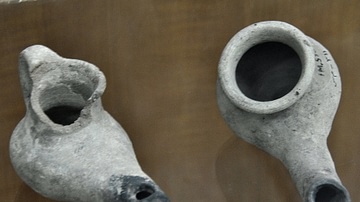
Image
Pottery Lamps
These two pottery lamps date back to the Neo-Assyrian period, 911-612 BCE. From Mesopotamia, modern-day Iraq. The Sulaimaniya Museum, Iraq.
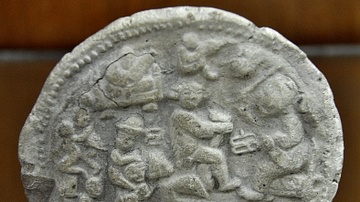
Image
Pottery Plaque from the Hellenistic Period
This round pottery plaque depicts various human daily activities. In the middle, a man and a woman are having sex, and on the left, a standing woman holds a young child on her shoulders. Hellenistic Period, 323-30 BCE. From Mesopotamia, modern-day...